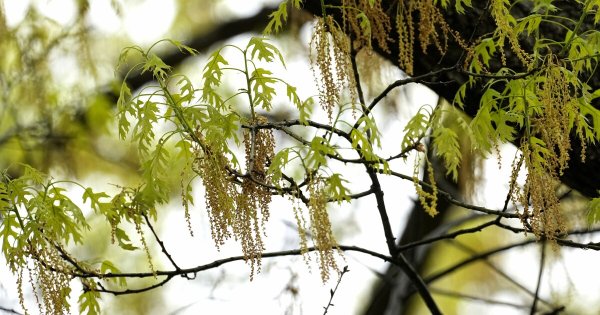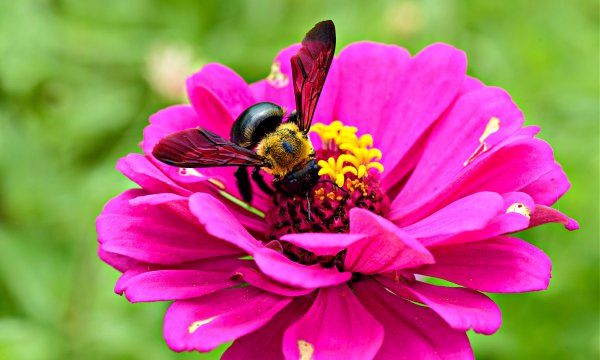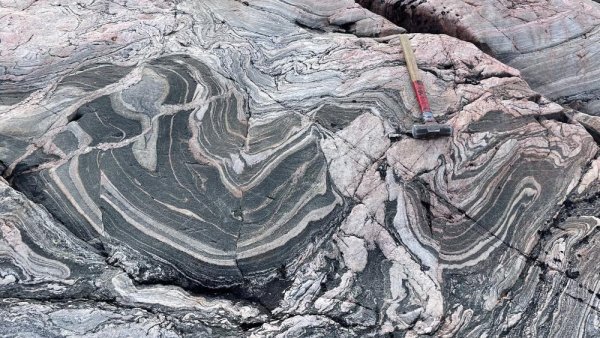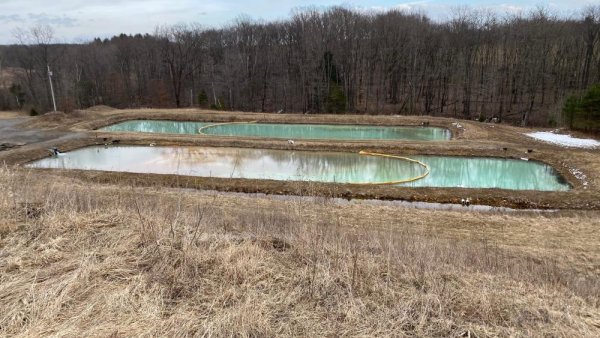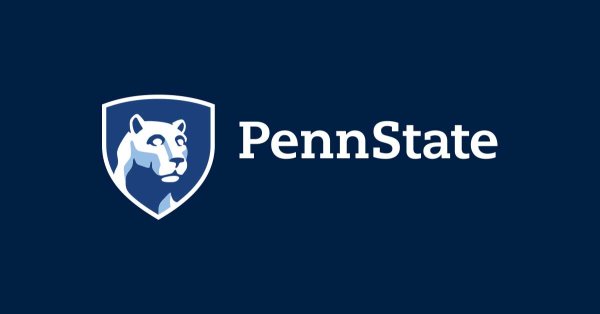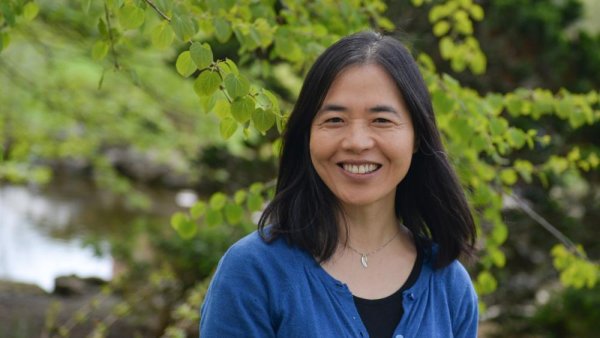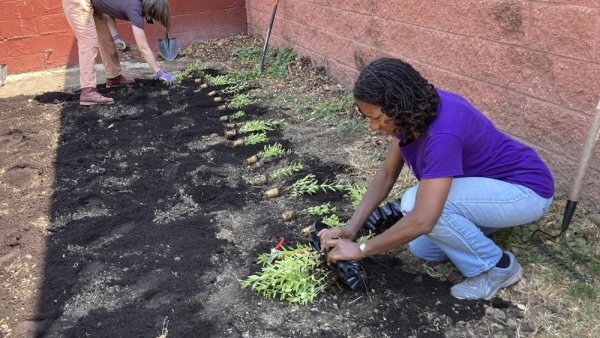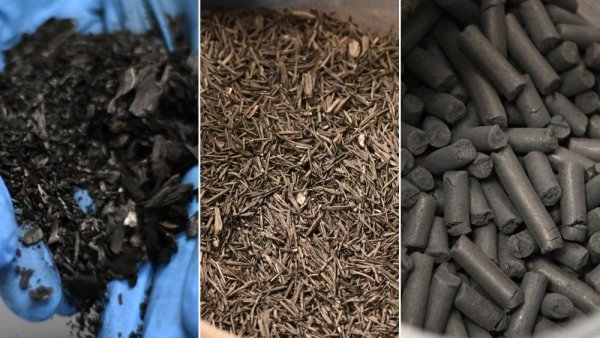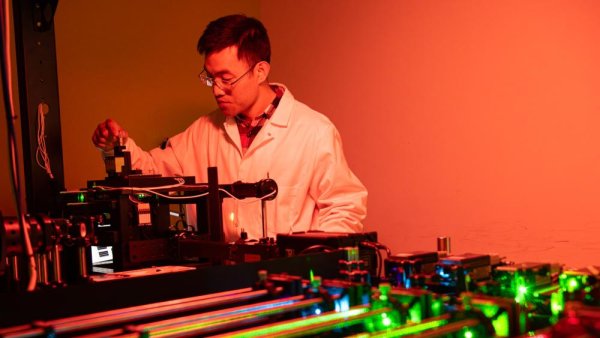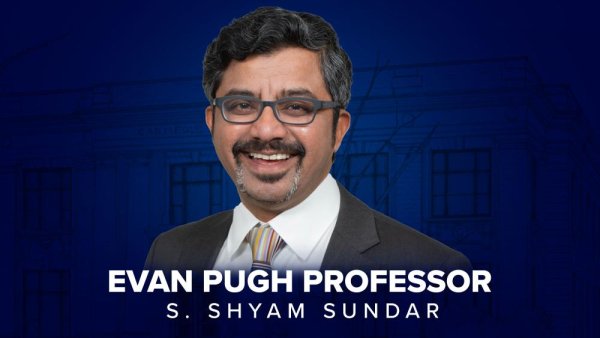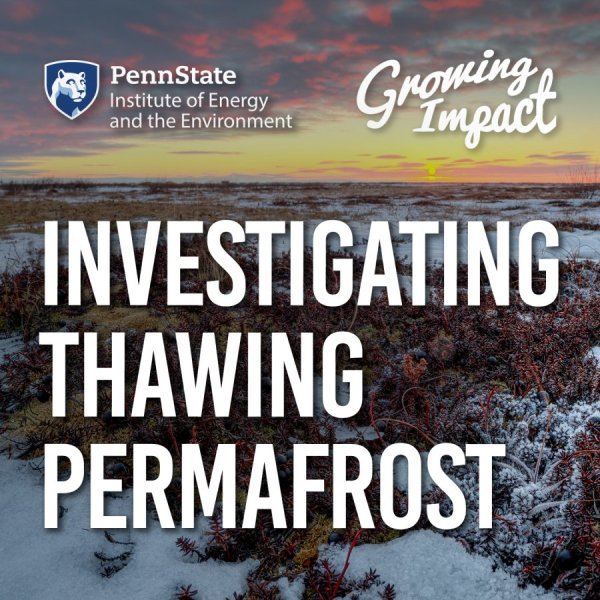'Extreme' pollen counts, climate change fuel Pa. allergy misery
| wesa.fm
As warmer temperatures start earlier and last longer, pollen growth leads to more people suffering from allergy symptoms across Pennsylvania. This article mentions Penn State research.
Bees' ability to withstand heat varies by size and sex
| earth.com
Researchers at Penn State discovered that larger squash bees, particularly males, demonstrate greater heat tolerance. This article features Penn State research.
Rock steady: Study reveals new mechanism to explain how continents stabilized
| psu.edu
Ancient, expansive tracts of continental crust called cratons have helped keep Earth’s continents stable for billions of years, even as landmasses shift, mountains rise and oceans form. A new mechanism proposed by Penn State scientists may explain how the cratons formed some 3 billion years ago, an enduring question in the study of Earth’s history. The team published their work in Nature.
$4.99M DOE grant to build domestic supply chain for critical minerals
| psu.edu
A Penn State research team was recently awarded a $4.99 million grant from the U.S. Department of Energy to develop and assess advanced separation technologies for the extraction and recovery of rare earth elements and other critical materials from coal, coal wastes and coal by-products.
SustainaLions, new Employee Resource Group announced
| psu.edu
New Employee Resource Group to focus on educating, engaging and connecting with Penn State employees to promote and support sustainability across the University.
Engineering researcher awarded IEE 'Person of the Year' for 2023
| psu.edu
Li Li, the Barry and Shirley Isett Professor in Civil and Environmental Engineering at Penn State, is the 2023 recipient of the Institute of Energy and the Environment’s Person of the Year Award.
Firefly populations at risk due to climate change, urban development
| gettysburgtimes.com
Catching fireflies is an iconic summer experience for many people living in North America, but the flickering beetles are on the decline. This article features Penn State research.
Penn State Extension praised by state for native plant gardens in Philadelphia
| psu.edu
The Penn State Extension Master Watershed Steward program in Philadelphia County, in partnership with the Friends of Wharton Square Park, recently received a Governor’s Award for Environmental Excellence, presented annually by the Pennsylvania Department of Environmental Protection.
Video series shares sustainability lessons from trip to New Zealand, Australia
| psu.edu
If a picture is worth a thousand words, Annie Taylor hopes videos will bring an invaluable experience — an opportunity to learn about sustainability — to everyone, without traveling far from home. Last year, Taylor, senior assistant dean for distance learning in the Penn State College of Earth and Mineral Sciences, and Kaitlin Farnan, a business instructor at Penn State Altoona, led 20 Penn State students on a trip to New Zealand and Australia to learn about sustainable business practices.
Q&A: Decarbonizing steel manufacturing
| psu.edu
David Mazyck, professor and head of Penn State’s School of Engineering Design and Innovation, and Daniel Whisler, associate professor of engineering design, were awarded a three-year, $1.33 million grant from the U.S. Department of Energy to explore ways to decarbonize the steel and iron manufacturing industry.
Why is breaking down plant material for biofuels so slow?
| psu.edu
New research led by Penn State investigators has revealed how several molecular roadblocks slow the breakdown of cellulose for biofuel production. This process, if accelerated, could avoid concerns around using a food source like corn for biofuels while taking advantage of abundant plant materials that might otherwise go to waste.
S. Shyam Sundar named Evan Pugh University Professor
| psu.edu
S. Shyam Sundar, the James P. Jimirro Professor of Media Effects, director of the Penn State Center for Socially Responsible Artificial Intelligence and founding director of the Media Effects Research Laboratory, has been named an Evan Pugh University Professor, the highest honor that Penn State bestows on a faculty member.

